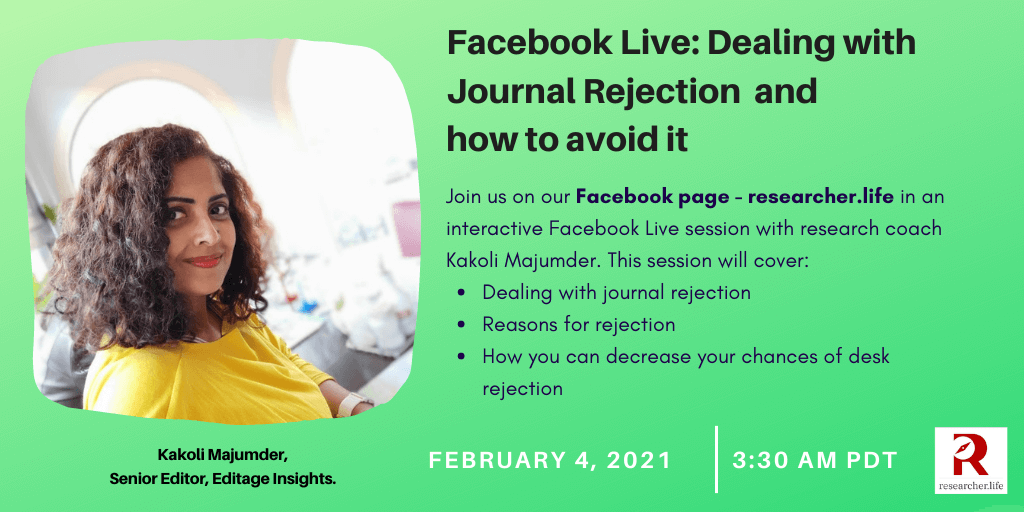
Rejection is a natural and necessary part of the academic publication process. Even the most famous researchers have had to face rejection. However that doesn’t make it any easier to deal with it. While it is natural to feel frustrated after a rejection, you should never let these feelings overpower you and make you give up! To help you learn how to deal with manuscript rejection, check out this special Facebook Live with Kakoli Majumder.
Whether you’re currently preparing your manuscript for submission, awaiting feedback or have already received reviewer comments, this session will guide you in how to deal with rejection and avoid desk rejection in the future.
Desk rejection (a rejection without peer review), is especially demotivating for researchers. While a rejection after peer review can be disappointing, reviewer comments are a great source of feedback and help you improve your manuscript for the next time you submit to another journal.
Kakoli is a research coach with more than seven years of experience working with researchers. The session recording is available on the researcher.life Facebook page.
This session covers:
- What should you do when you are faced with journal rejection?
- How to deal with rejection after review.
- Desk rejection: what it is and how to deal with it
- Reasons for rejection
- How to avoid desk rejection
- Tools that can help you avoid desk rejection
About Kakoli Majumder
Kakoli has over 10 years’ experience in the field of English Communication and Training, the last four of which have been dedicated to academic publishing. She is passionate about helping young researchers and authors, particularly, non-native speakers of English, overcome the barriers of language and publish in international English language journals. In her current role, her aim is to educate researchers about the publication process and good publication practices. She was the former expert voice behind Editage Insights’ Q&A forum and also writes learning content targeted at young researchers.
Kakoli’s empathy with authors and her understanding of the problems they face in research writing and publishing is reflected in her article “How do authors feel when they receive negative reviewer comments: An experience from Chinese biomedical researchers”.



